Communications | Health Sessions | Kisa Program | 5th September 2023
Deborah, our Communications Coordinator, recently shared her enlightening experience attending a health session at one of our partner schools in Kilimanjaro. These health sessions are designed for Kisa scholars, empowering them to make informed decisions about their health. What made this session unique was the presence of a male doctor who took the lead in delivering a crucial talk on menstruation.
In Deborah’s Words:
“I had the privilege of attending a health session with Kisa Scholars in Kilimanjaro. My aim was to understand the impact of these sessions on these young girls. The journey began at our Kilimanjaro office to Ashira Girls School, where I was introduced to the school’s head. Accompanying me was an esteemed doctor, Dr. Nathan from Kibosho Hospital.
Dr. Nathan began the session by delving into the intricacies of the menstrual cycle. He explained the process of menstruation, the fertilization of eggs, and emphasized that each of us is a result of fertilization. The girls were captivated by his discussion of menstruation, including the stages from first period to menopause. He explained specifics like monthly blood flow volume and duration, ovulation, tracking cycles, and menstrual cramps with clarity and creativity.
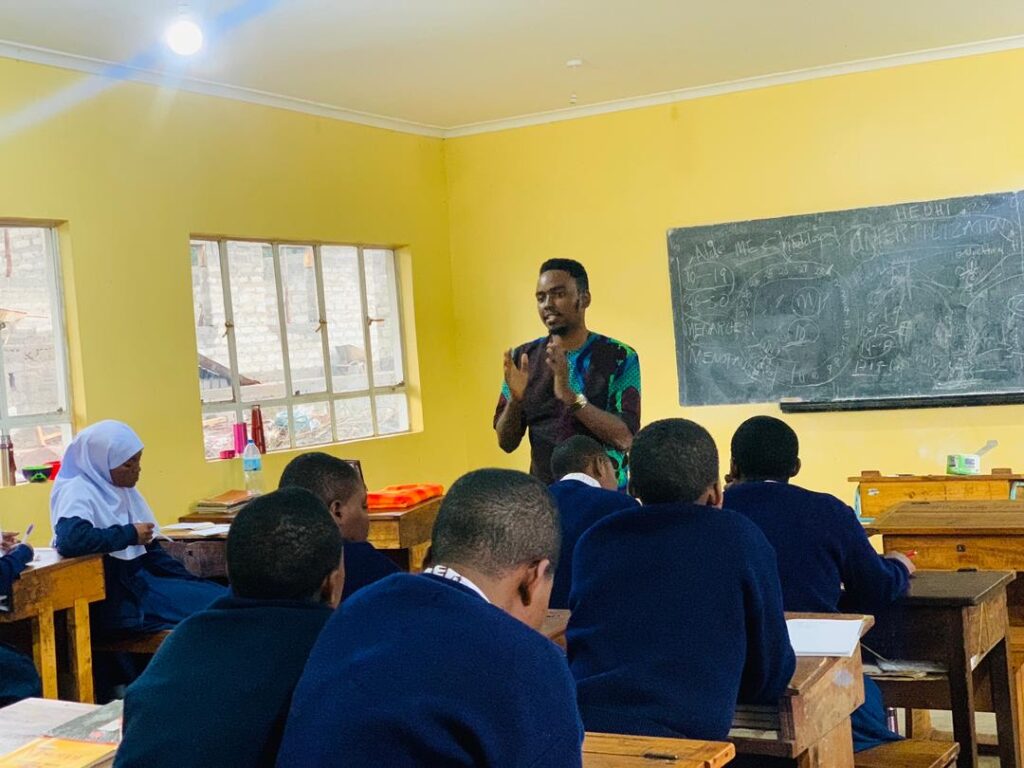
To illustrate menstrual cramps, Dr. Nathan ingeniously used a sweater to represent muscle contractions. He educated the girls on Menstrual Hygiene Management (MHM), emphasizing maintaining cleanliness during menstruation. He discussed menstrual management materials and the importance of community education on proper disposal of used materials to preserve a clean environment.
Addressing menstrual discomfort, he recommended exercise, hydration, and pain relief. Dr. Nathan’s involvement extended beyond the classroom; he had previously addressed parents during ‘Parents Engagement Meetings,’ guiding them on supporting their daughters during menstruation.
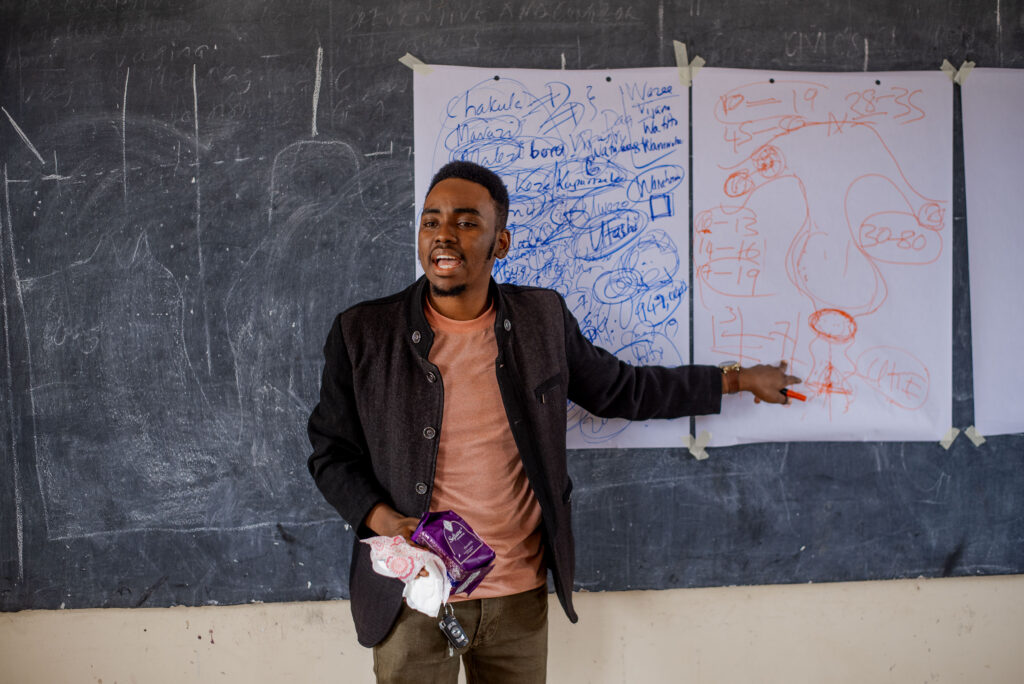
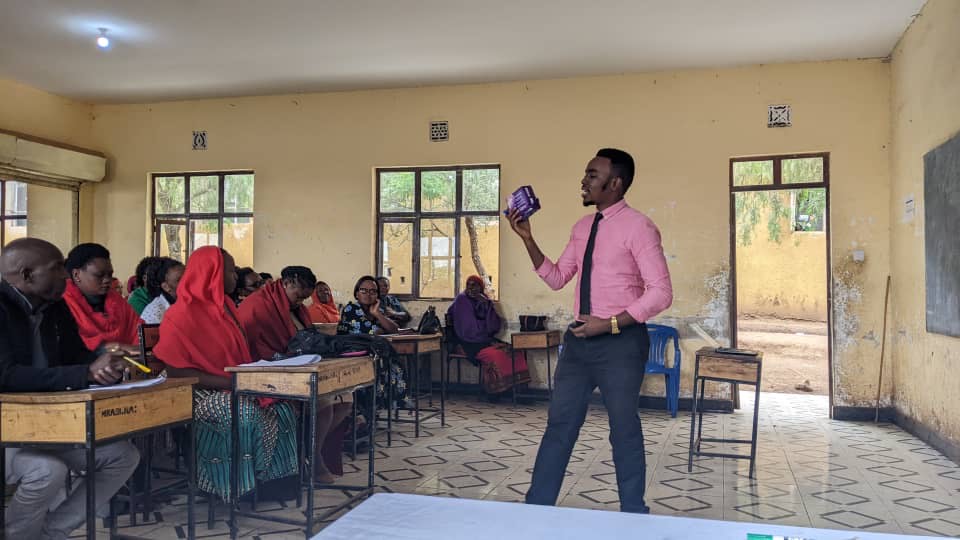
Curious about the scholars’ perspectives on having a male doctor discuss such an intimate topic, I spoke to Theresia, a Kisa Year 2 scholar, and Manka, another Kisa scholar from Ashira. Theresia said, ‘He explained as if he had personal experience, as if he had walked in our shoes. He made me feel comfortable asking questions, and he responded well. What made it engaging was his ability to incorporate humor and real-life examples into his explanations, which greatly facilitated understanding. Furthermore, I appreciated that he is a doctor who is passionate about discussing women’s issues and supporting women’s health.’
Manka mentioned that she was pleasantly surprised to see a male doctor discussing menstruation with girls. She admitted that she had often felt uneasy explaining her health issues, particularly regarding menstruation, to male doctors. However, after witnessing Dr. Nathan’s clear and informative explanation, she gained confidence to approach any healthcare professional, including male doctors, should she need reproductive or menstrual health support.
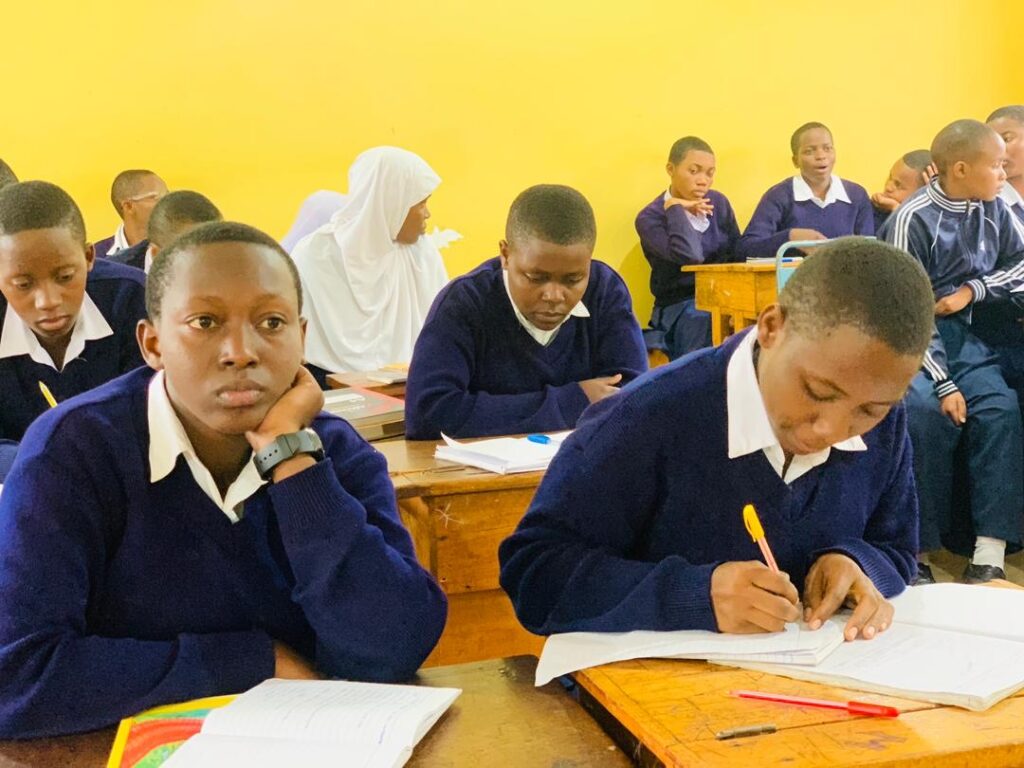
I asked Glory Lucian, GLAMI Program Mentor, about how impactful the session was and what changes she anticipated among the girls. She responded, ‘This session has raised awareness among the scholars about reproductive health. It has made them understand that discussions about the female reproductive system and menstrual health are topics anyone can engage in, regardless of gender. Scholars are no longer hesitant to seek guidance from male relatives or parents when it comes to their health, especially if it involves their reproductive system.’
Intrigued by Dr. Nathan’s dedication, I asked him about his motivation towards women/girls health issues. He shared, ‘In my 8 years of medical practice, I’ve observed a lack of reproductive health awareness among students, leading to cases of UTIs, fungal infections, pelvic inflammatory diseases, and teenage pregnancies. Tragically, incidents of rape have disrupted the lives of some girls and women, resulting in HIV and unwanted pregnancies. Motivated by this, I began educating girls visiting our hospital and extended my efforts to students at Kibosho School of Nursing. In 2022, I became the National Facilitator on Reproductive Health through training facilitated by Tanzania’s Ministry of Health. Driven by my passion for teaching, GLAMI provided me with a platform to empower young female leaders, fueling my enthusiasm.’
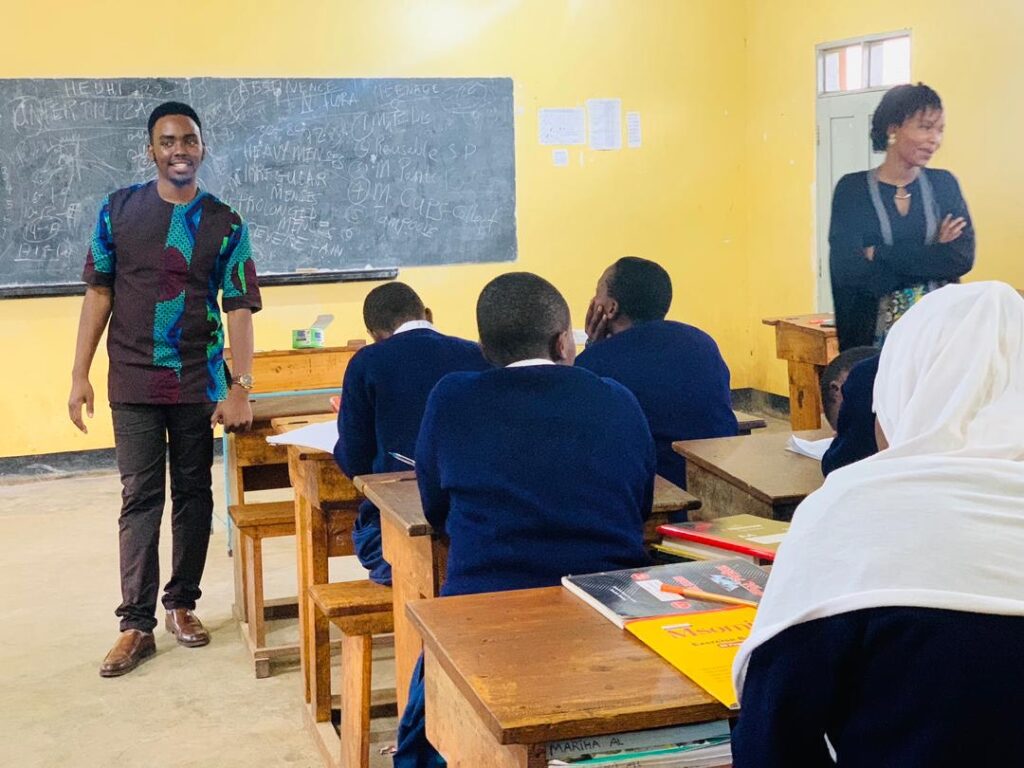
Breaking societal barriers requires champions who believe in education and empowerment. Dr. Nathan’s dedication showcases that anyone, regardless of gender, can play a pivotal role in fostering awareness and understanding of girls’ needs. His efforts contribute to a future where open conversations about menstrual health are the norm, and girls can approach this natural process with confidence and dignity.”

GLAMI Communications Coordinator